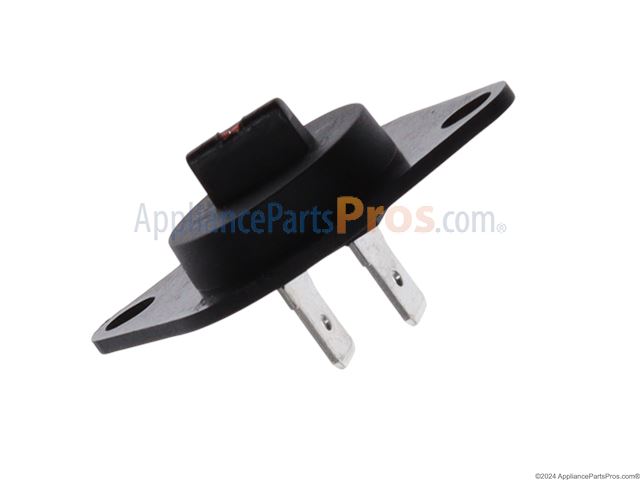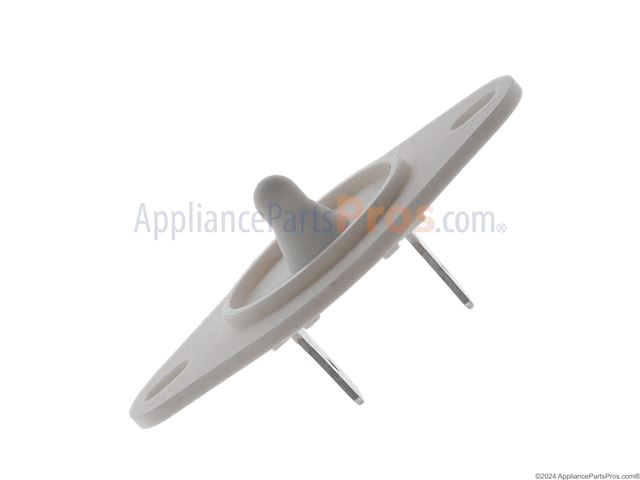Frigidaire Frontload Washer Fault Codes
Model differences:
- Better models have a digital readout display
- Good models do not have a digital readout display
In the Better Models line, the failure codes will appear in the display as an E followed by two numbers, a number and a letter or two letters. The control will beep and the Door Lock, Wash, Rinse, Final Spin and Control indicator lights will flash.
Example: E14. To stop the flashing and beeping, the customer may touch the Pause Cancel button. The error code remains stored in the control but once the problem is corrected, it does not effect the operation of the washer. If the failure is something that the customer can correct (such as the water faucets being turned off), the washer will operate normally the next time it is started.
In the Good Models line, the control signals the failure code by flashing the five indicator lights of Door Lock, Wash, Rinse, Final Spin and Control for the first number or letter after the E and the Start indicator light for the second number or letter after the E. When a failure occurs, the washer stops or pauses and the control beeps and flashes the five indicator lights to tell the customer that a failure has occurred. To stop the flashing and beeping, the customer may touch the Pause Cancel button. The error code remains stored in the control but once the problem is corrected, it does not effect the operation of the washer. If the failure is something that the customer can correct (such as the water faucets being turned off), the washer will operate normally the next time it is started.
To recall an error code:
- Wake the machine by pressing any button
- Wait 5 seconds
- Press and hold the Start and Pause Cancel buttons simultaneously
- All LEDs will go blank and after a few seconds the control will signal the stored code using audible beeps and blinking LEDs. The control will repeatedly signal the code, as long as the Start and Pause Cancel buttons are pressed. A two-second pause between repeats affords you the ability to make accurate counts to identify the correct error codes.
Please Note the following...... on a small number of washers with serial number prefix XC4, if the previous procedure does not perform as specified, follow the option below: • Follow all previous steps but instead of pressing Start and Pause Cancel buttons, press and hold Options and Pause Cancel buttons.
If the washer is a Better Model, the error code will appear in the display. Troubleshoot problem.
If the washer is a Good Model, the five indicator lights of Door Lock, Wash, Rinse, Final Spin and Control will flash the number of times for the first digit of the code and the Start indicator light will flash the number of times for the second digit. Take separate counts of each indicator light, then repeat to confirm in order to be accurate in identifying the proper error code.
The code is obtained by counting the number of times the lights flash. Example E24: The five indicator lights would flash twice indicating the 2 and the START indicator light will flash four times indicating the 4. The five indicator lights and the START indicator light start flashing at the same time.
The control will pause for 2 seconds, then repeat the code as long as the two buttons are pressed and held.
Note: A letter appearing in the code stands for a number higher than nine:
A = 10 B = 11 C = 12 D = 13 E = 14 F = 15
Example Code F1: the first digit would be 15 and the second digit would be 1. If this code would appear on a washer in the Good model line, the five indicator lights would blink fifteen times and the START indicator light would blink once.
Diagnostic Test:
The diagnostic test is performed by using the Program Knob. To START THE TEST:
- On non-digital display models, turn the Program Knob to start position, Drain/Spin.
- On digital display models, turn the Program Knob to start position, Touch Up. (NOTE: If the model has a timer dial that can be rotated 360°, turn the Program Knob to start position, Drain/Spin.
- Press Pause Cancel to turn off LEDs.
- Within 5 seconds, press and hold the Option and Pause Cancel buttons until LEDs start sequentially chasing, then release buttons.
- All the LEDs will sequentially light. Pressing a button below a light cluster will light all the LEDs in that cluster at one time to confirm functionality.
- Turn the program knob (1) click clockwise from the start position. The hot water solenoid will activate and hot water should enter through the detergent compartment.
- Turn the program knob (2) clicks from the start position. The bleach water solenoid will activate and cold water should enter through the bleach compartment.
- Turn the program knob (3) clicks from the start position. The bleach and the wash water solenoids will activate and cold water should enter through the softener compartment.
- Turn the program knob (4) clicks from the start position. The door lock solenoid will activate.
- Turn the program knob (5) clicks from the start position. The door lock solenoid will deactivate and the loading door can be opened.
- Turn the program knob (6) clicks from the start position. The washer will fill and tumble.
- Turn the program knob (7) clicks from the start position. The washer will fill and spin (leakage test).
- Turn the program knob (8) clicks from the start position. The drain pump and door lock solenoid will activate and the washer will operate in high spin. SAFETY WARNING: If power is removed during this test, the door can be opened. To prevent injury, DO NOT put your hands inside when the tub is rotating.
- Turn the program knob (9) clicks from the start position. The control will signal the last error code.
Exiting Diagnostic Mode
There are two options for exiting the Diagnostic Test mode and returning the washer to normal operation:
- Unplug the power cord, wait 5-8 seconds, then reconnect the power cord OR
- Turn the program knob clockwise 2 or 3 clicks after the Start Position. Press Options and Pause Cancel buttons together for a few seconds until wash cycle LEDs appear. If a situation arises where you cannot exit the Diagnostic mode as described above and the bank of 5 LED's on the right end remain ON regardless of Program Knob position, a combination of pushed buttons may have caused the control to enter a special factory test mode. Disconnect power to reset the control to return washer to normal operation is this occurs.
To clear latest stored error code:
Place the control into Diagnostic test Mode.
- Turn the program knob clockwise 9 clicks from the Start Position. The control will signal the last error code.
- Press and hold the Options and Pause Cancel buttons for 3 seconds. The code will be cleared.
- Exit Diagnostic Mode to return the washer to normal operation.
Error code - Fault condition
E11 Fill time too long.
E13 Water leak in tub or air leak in air bell.
E14 Reed switch.
E21 Water not pumping out fast enough.
E23 Drain pump relay on control board failed.
E24 Drain pump relay on control board failed.
E31 Better models. Pressure sensor not communicating with control board.
E35 Better models. Pressure sensor indicates water overfill.
E41 Control board thinks the door switch is open.
E42 Door remains locked after cycle is completed.
E43 Control board problem.
E44 Control board problem.
E45 Control board problem.
E46 Control board problem.
E47 Board thinks the door PTC circuit is open in spin.
E48 Board thinks the door PTC circuit is closed.
E52 Bad signal from tacho generator.
E55 Motor overheating.
E56 High motor current.
E57 High current on inverter.
E58 High current on motor phase.
E59 No tacho signal for 3 seconds.
E5A High temperature on heat sink.
E5B High temperature on heat sink.
E5C High temperature on heat sink.
E5D Communication problem.
E5E Communication problem.
E5F Communication problem.
E67 Input voltage on microprocessor incorrect.
E75 Better models only. Water temperature sensor circuit.
E76 Better model only. NTC temperature for the cold water valve over the limits.
E95 Communication error.
EB1 Incoming power frequency out of limits.
EB2 Incoming line voltage above 130 VAC.
EB3 Incoming line voltage below 90 VAC.
EF1 Clogged drain pump.
EF2 Too much soap.
Related Links
- Frigidaire Washer Dispenser Parts
- Frigidaire Washer Knob, Dial, Buttons
- Frigidaire Washer Control Boards










